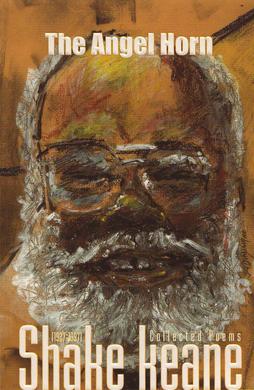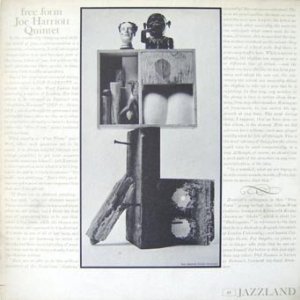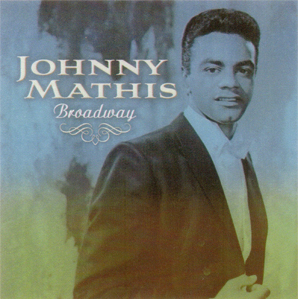
Ronnie Scott OBE was a British jazz tenor saxophonist and jazz club owner. He co-founded Ronnie Scott's Jazz Club in London's Soho district, one of the world's most popular jazz clubs, in 1959.
Joseph Arthurlin Harriott was a Jamaican jazz musician and composer, whose principal instrument was the alto saxophone.

Jim Gilbert Pepper II was a jazz saxophonist, composer and singer of Kaw and Muscogee Creek Native American heritage.
Michael Garrick was an English jazz pianist and composer, and a pioneer in mixing jazz with poetry recitations and in the use of jazz in large-scale choral works.
British jazz is a form of music derived from American jazz. It reached Britain through recordings and performers who visited the country while it was a relatively new genre, soon after the end of World War I. Jazz began to be played by British musicians from the 1930s and on a widespread basis in the 1940s, often within dance bands. From the late 1940s, British "modern jazz", highly influenced by American bebop, began to emerge and was led by figures such as Sir John Dankworth, Tony Crombie and Ronnie Scott, while Ken Colyer, George Webb and Humphrey Lyttelton played Dixieland-style Trad jazz. From the 1960s British jazz began to develop more individual characteristics and absorb a variety of influences, including British blues, as well as European and World music influences. A number of British jazz musicians have gained international reputations, although the music has remained a minority interest there.

George Coleridge Emerson Goode was a British Jamaican-born jazz bassist best known for his long collaboration with alto saxophonist Joe Harriott. Goode was a member of Harriott's innovatory jazz quintet throughout its eight-year existence as a regular unit (1958–65). Goode was also involved with the saxophonist's later pioneering blend of jazz and Indian music in Indo-Jazz Fusions, the group Harriott co-led with composer/violinist John Mayer.

Ellsworth McGranahan "Shake" Keane was a Vincentian jazz musician and poet. He is best known today for his role as a jazz trumpeter, principally his work as a member of the ground-breaking Joe Harriott Quintet (1959–65).
Patrick Mungo Smythe was a Scottish jazz pianist, who rose to prominence as a member of the Joe Harriott Quintet during the 1960s.
Robert Orr was a Scottish jazz drummer and session musician.
Timothy Gray was an American songwriter, author, singer and director, remembered for his partnership with Hugh Martin which produced High Spirits, a musical based on Noël Coward's play, Blithe Spirit.

Quintessence is an album by American jazz pianist Bill Evans. It was recorded in 1976 for Fantasy Records and released the following year. At this time usually playing solo or with his trio, for these sessions Evans was the leader of an all-star quintet featuring Harold Land on tenor saxophone, guitarist Kenny Burrell, Ray Brown on bass, and Philly Joe Jones on drums.

John Henry Basil Mayer was an Indian composer known primarily for his fusions of jazz with Indian music in the British-based group Indo-Jazz Fusions with the Jamaican-born saxophonist Joe Harriott.

That's All is a 1965 studio album by Mel Tormé, arranged by Robert Mersey.

Free Form is an album by Jamaican saxophonist Joe Harriott recorded in England in 1960 and the second released on the Jazzland label.

Abstract is an album by Jamaican saxophonist Joe Harriott, recorded in England in November 1961 and May 1962, and released on the Columbia (UK) label in February 1963. It was released by Capitol Records in the United States.

Movement is an album by Jamaican saxophonist Joe Harriott recorded in England in 1963 and released on the Columbia (UK) label.
Stuart Hamer is a British jazz trumpeter. Following an illness in the late 1980s, he switched to the piano and concentrated on composition.

Chet Baker & Strings is an album by jazz trumpeter Chet Baker recorded in late 1953 and early 1954 and released on the Columbia label.

Broadway is an album by American pop singer Johnny Mathis that was recorded in 1964 but not released by his then record label Mercury Records. The project first became commercially available on August 28, 2012, when Sony Music Entertainment released it as one of two albums on one compact disc, the other album being his 1965 LP Love Is Everything. Broadway was also included in Sony's Mathis box set The Complete Global Albums Collection, which was released on November 17, 2014.

"You'd Better Love Me" is song written by Hugh Martin and Timothy Gray for the 1964 musical High Spirits. "You'd Better Love Me" and the B-side "Home Sweet Heaven" were originally performed by Tammy Grimes.













